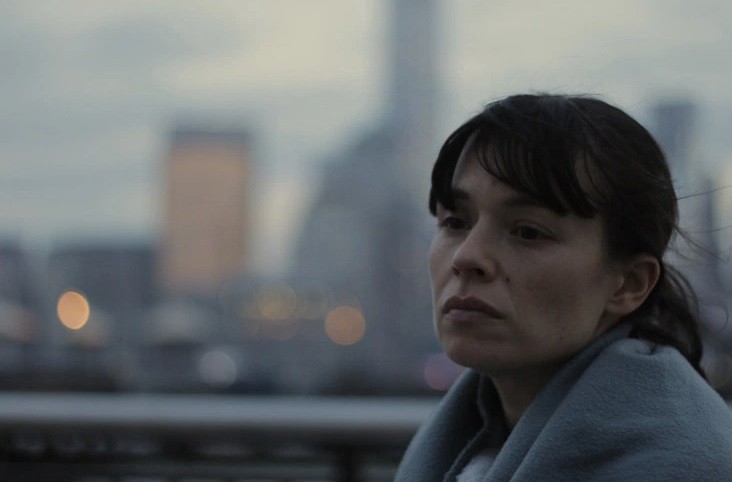Guest Post by Angela Cohen
Why do we go to the movies? Maybe it’s to escape, to relate, live vicariously, feel less alone, or get inspired. Why do I make movies? I want people to love, laugh, cry, and most importantly, open their minds. I tell underdog stories with social relevance to make an impact on the viewer and inspire them to create change, whether that be in their own lives or in the world. If I can help others help themselves, then I’ve succeeded.
I wrote my new short, “Without Grace,” for a few reasons. For one, I’m very passionate about mental health and have seen many suffer around me while caring for those who struggle with it. I wanted to share that story with the world to make caregivers feel a little less alone in their journey and empower them to seek community amongst themselves.
I’m also impassioned telling women’s stories and know that if I don’t do my part in that process then I become part of the problem. That problem — which I think most of us are well aware of at this point — is that women represent half of the population yet in 2016 93 percent of the top-grossing movies were directed by men. Eighty-seven percent had no female writers and 95 percent had no female cinematographers. I needed to be a part of changing those numbers and pushing the needle forward.
I also wanted the opportunity to play a role I typically wouldn’t be cast in and hoped to do it with my favorite actress and mentor, Ann Dowd. Luckily, she’s also passionate about these issues and was the perfect fit to play Kira, the mother of the troubled title character, Grace.
Ann is best known for her incredible roles in “Compliance,” HBO’s “The Leftovers,” and most recently, as the haunting Aunt Lydia in Hulu’s “The Handmaid’s Tale.” She signed onto “Without Grace” shortly after reading the script and championed it the entire way. She tirelessly read iteration after iteration, giving her earnest feedback as she too is a mother, and an amazing one at that. The mother/daughter relationship in the film is the core of the story as Grace, a young woman with multiple psychiatric diagnoses, returns home to live with her aging parents, ultimately threatening the sanity and the lives of the family. Kira is faced with the difficult choice of continuing to care for and enable her daughter or let her go to learn to care for herself and risk losing her — a parent’s greatest fear. Anyone who knows Ann’s work will agree that she nails complex characters.
The next step was to bring on a talented director with a keen eye and sensitivity toward the topic. Deborah Kampmeier’s name was mentioned in a conversation I had with an Oscar-winning producer. After connecting with Deborah, it was clear she would bring this story to the screen in a way that only a mother could, highlighting the intense feelings at the heart of the relationship — the love and struggle that comes with being a parent.
Deborah came on board just in the nick of time, as one director had decided it was best to pass, which left me considering directing the project myself. Ultimately, I felt wearing too many hats with such a demanding role wasn’t in the best interest of the film and that proved to be a great learning curve as a producer.
Fundraising was an ongoing challenge, as most filmmakers will attest. I crowdfunded a portion of the budget via supportive friends and family and ultimately was lucky enough to attract long-time friend turned angel investor, Peter Elias. Peter had acted alongside both Ann and I in the past and after reading the final script, he signed on to executive produce.
I had known casting directors Mia Cusumano and Meghan Rafferty for many years when they suggested John Doman, most notable as Billy Rawls of HBO’s “The Wire,” for the father character, Joel. John’s essence was exactly what the role called for, a stolid provider who had softened with age.
With a mission to hire as many talented women as possible, our team was rounded out with AIC-IMAGO cinematographer Valentina Caniglia, line producer Veronica Nickel — who went on to win an Oscar this year for “Moonlight” — and other crew members that all worked passionately to put this script onscreen.
“Without Grace” premiered June 23 at the Toronto Female Eye Film Festival’s International Short Film program.
Angela Cohen is an actress, producer, writer, and director. She was recently sponsored by Google’s Jumpstart initiative for her upcoming film, “The Art of Saving a Life.” You can follow her @AngelaCohen and learn more about “Without Grace” and “The Art of Saving a Life” here.







